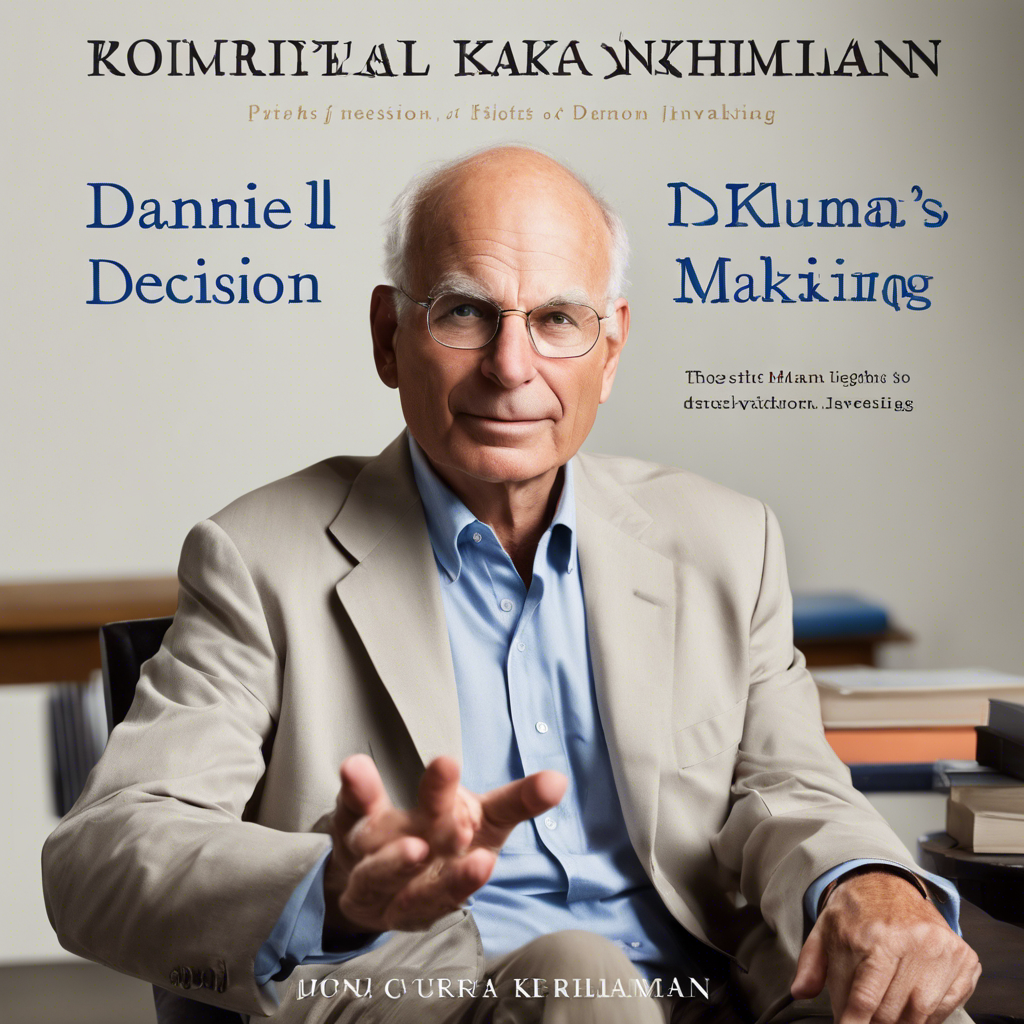Daniel Kahneman’s Insights on Human Decision-Making and Investing

Understanding the Dual Systems of Thinking and Their Implications for Investors
Daniel Kahneman, an Economics Nobel Laureate, has revolutionized our understanding of human decision-making through his groundbreaking book, ‘Thinking, Fast and Slow’. In this book, he introduces the concept of two systems that influence our thought processes: System 1, which operates swiftly and intuitively, and System 2, which engages in deliberate and logical thinking. These systems have profound implications for investors, as biases originating from System 1 can lead to suboptimal investment decisions. However, by intentionally activating System 2 and embracing humility, investors can improve their results and navigate the complexities of the financial world more effectively.
1: Biases and Suboptimal Decision-Making
Kahneman highlights several cognitive biases, including overconfidence, framing effects, and loss aversion, that can distort judgment and lead to impulsive investment decisions. These biases may result in chasing past successes, panicking during market downturns, and disregarding long-term historical data. Recognizing and mitigating these biases is crucial for making rational and well-informed investment choices.
2: Activating System 2 for Improved Results
Engaging System 2, the slower and more deliberate thinking system, can help investors overcome biases and make better decisions. Thoughtfully evaluating risk-reward scenarios, seeking diverse perspectives, and leveraging long-term historical data can contribute to more rational and informed investment choices. By consciously activating System 2, investors can mitigate the influence of System 1 biases and improve their overall results.
3: Embracing Humility for Financial Advantages
Kahneman emphasizes the importance of humility in the financial sphere. Recognizing our cognitive limitations and the inevitability of mistakes enables us to navigate critical situations more effectively. Understanding biases such as overconfidence, anchoring, and loss aversion allows us to avoid falling into these traps. Additionally, learning from past missteps and reflecting on contributing factors provides valuable insights for future decision-making.
4: Skepticism Towards Consistent Outperformance
Kahneman harbors skepticism regarding the ability of individual investors to consistently outperform the market. Market efficiency, cognitive biases, and the advantage held by seasoned investors with superior resources contribute to this skepticism. Research overwhelmingly supports the notion that most active mutual funds underperform the market, suggesting that stock picking is a game of chance rather than skill.
5: Low-Validity Environments and Consistency
Kahneman characterizes stock picking as a ‘low-validity environment’, where predicting future outcomes is challenging. Factors like unpredictable news, market psychology, and external events make consistently profitable investment opportunities elusive. In such environments, consistency is key. Adhering to a defined investment process grounded in sound principles and long-term goals helps mitigate the impact of emotions and biases, enhancing the likelihood of long-term success.
6: The Role of Luck and Skill
Kahneman emphasizes the role of luck in achieving success, even for individuals possessing considerable skill. Acknowledging the influence of chance events cultivates humility, promotes caution, and fosters realistic expectations. While luck plays a significant role, investors should focus on developing foundational skills, managing emotions, controlling risk, and implementing well-researched investment strategies.
Conclusion:
Daniel Kahneman’s insights on human decision-making offer valuable lessons for investors. By understanding the dual systems of thinking, recognizing biases, and embracing humility, investors can navigate the complexities of the financial world more effectively. While consistently outperforming the market may be challenging, focusing on skill development, managing emotions, and implementing disciplined strategies can enhance the prospects of long-term success. Kahneman’s work provides a unique perspective on investing and offers an essential understanding of risks, luck, and talent in wealth creation in the stock market.

